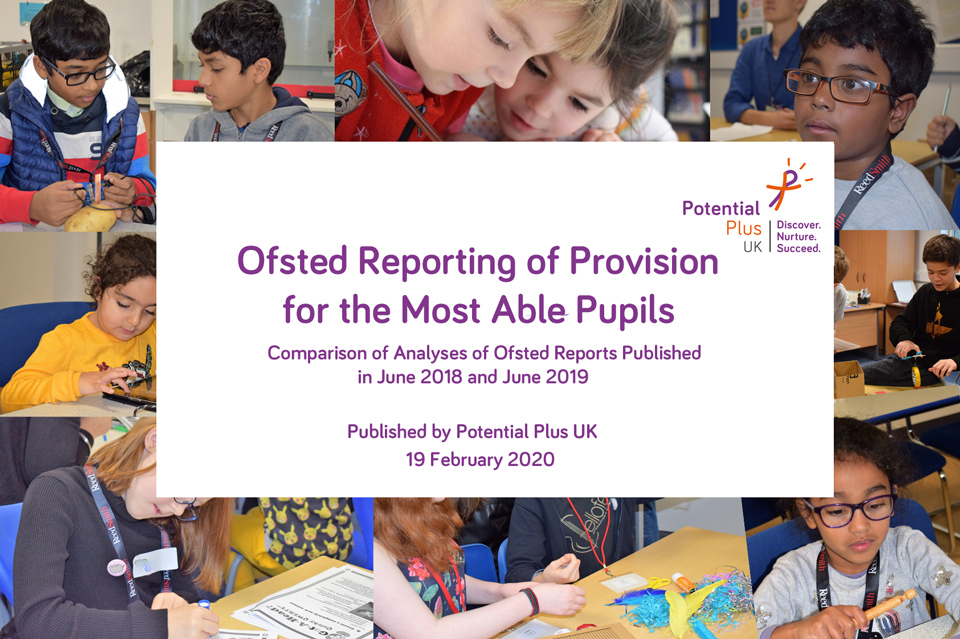Ofsted inspection reports are just one tool parents use when deciding what school would be a good fit for their child. Potential Plus UK is a not-for-profit organisation whose aim is to improve the quality and provision of support for high potential/more able/most able/gifted learners, including those with special educational needs and/or those from disadvantaged backgrounds. In a new study they examined Ofsted reports to find out how well schools were serving the needs of high potential learners.
Analysis was carried out on Ofsted reports from June 2018, which identified that 44.09% of organisations required change to their ‘more able’ provision. The vast majority of this change was a need for more challenge (66.67%) and/or more progress (27.73%).
In order to ensure that this was not an anomaly the analysis was repeated for inspection reports from June 2019. It was a similar picture. The percentage of organisations requiring change to their ‘more able’ provision had not significantly improved. The 2019 analysis showed that 44.83% of organisations required change to their ‘more able’ provision: with the vast majority requiring more challenge (60.07%) and/or more progress (26.74%).
In addition, this requirement for improvement was throughout all Ofsted categories. In the 2019 research three schools rated ‘Outstanding’ by Ofsted were recommended to improve their ‘more able’ provision. In 2018 it was one school.
The new Ofsted framework came into effect in September 2019 and Potential Plus UK acknowledges there is much in it to be welcomed. Their Chief Executive, Julie Taplin, says: “The focus on the quality of education that a student receives should benefit all learners, including those with high learning potential, who frequently have starting points that are above and beyond age-related expectations. This emphasis together with the importance of breadth in the curriculum should lead to an environment that delivers for each individual child, regardless of their starting point. But given that any reference to ‘more able’ learners has been omitted from the framework, we are concerned about how well and how often any need for improvement in provision will now be identified and reported on.”
Potential Plus UK put their concerns to Ofsted. According to an Ofsted spokesperson: “Before making the final judgement on overall effectiveness, inspectors will always evaluate the extent to which the school’s education provision meets different pupils’ needs.
In the process of reaching a judgement about the quality of education, inspectors consider the school’s curriculum and how it has been planned and implemented to meet the needs of pupils. They will also expect that teachers will either be experts in the subjects they teach or supported to address gaps in their knowledge so that pupils are not disadvantaged by ineffective teaching.
While we could try to list all the different groups that schools need to consider as they sequence their curriculum and develop the expertise of their teachers, we believe an exhaustive list is impossible, and it fails to acknowledge that many pupils may fall across several groups. As such, rather than listing groups, our focus has been on understanding need. This should not be interpreted as any group being considered less important.”
Potential Plus UK appreciates Ofsted’s approach to understanding need. A significant number of high potential learners also have special educational needs or may be experiencing other barriers to their engagement in education; all of which can be masked by their areas of strength. Similarly, their potential can be masked by their learning difficulties.
However, the fact remains: the new study shows that 44% of organisations received recommendations to improve their provision and it isn’t clear how the new inspection framework will identify and report on this in future. Potential Plus UK will be following developments closely.
The full report can be read here: Ofsted Reporting of Provision for the Most Able Pupils






